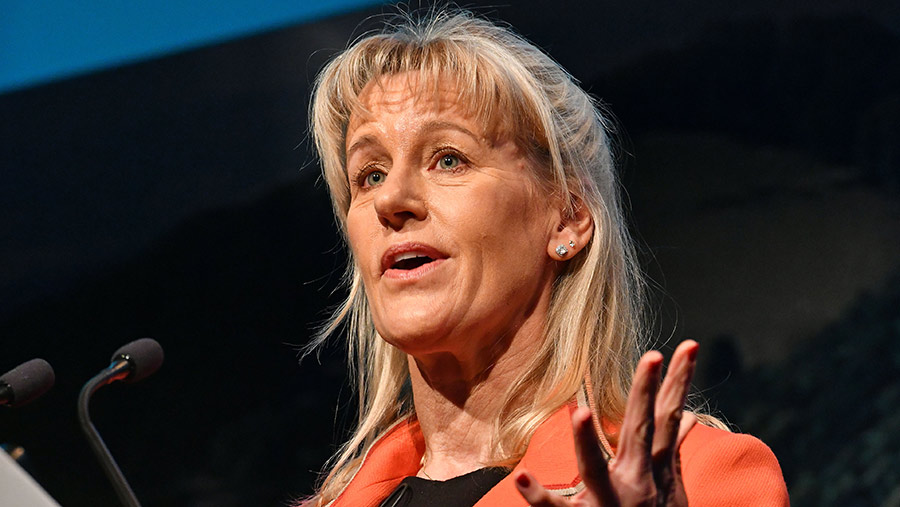Minette Batters sets the record straight on ELM scheme
 Minette Batters © NFU
Minette Batters © NFU Farm leader Minette Batters has reiterated the NFU’s vision for the government’s Environmental Land Management (ELM) scheme, hitting back at accusations that the union is anti-environment.
Speaking during an NFU Conservative Party fringe event in Birmingham on Monday (3 October), Mrs Batters said she had been “banging the drum” on food security for nine years.
And she was delighted that the prime minister had finally realised food security must be a priority, following the impact of Brexit and the war in Ukraine on global food supplies.
See also: Defra rejects claims its ELM scheme could be axed
But Mrs Batters said the government must ensure the Sustainable Farming Incentive (SFI) scheme – the first component of ELM – is detailed and profitable for farmers. Therefore, she would like to see 65% of the ELM budget “frontloaded” into the SFI.
“We have to get this right and we have to get as many farmers as possible wanting to farm on that platform. Otherwise, I’m absolutely sure the Treasury will take that budget away,” she warned.
“It has always been reiterated that we need to see 70% of farmers as a bare minimum on that platform.”
Scaling up
Thereafter, farmers and landowners will be encouraged to look at scaling up their land into other upcoming ELM schemes, such as Landscape Recovery.
“You get farmers on the platform and then you encourage them to scale the ladder,” she stressed.
“Some of them are already at the top of the ladder. Some haven’t got on to the first rung, but everybody has to have the chance to scale those ladders.”
Mrs Batters said the industry must look at how the private market can work alongside the public market on the larger-scale green schemes.
“For us, it’s not about being anti-rewilding. I have no problem with rewilding. But I feel very strongly, on behalf of the NFU, that the Landscape Recovery scheme and things like it, need to be about private investment,” she said.
“There is a huge amount of private investment out there that is absolutely waiting for the defining of these new markets on water quality, on biodiversity, and eventually on carbon credits.”
This autumn, the NFU will publish a paper setting out what it believes the government’s principles on farming policy must be, Mrs Batters revealed.
This will highlight what is needed for “these new emerging trends that must be farmer-owned and farmer-led”.
“Above all else, they must drive investment back into our soils, back into water quality,” she said.
Defra policy review
New Defra farm minister Mark Spencer said in all his political career, food security has never been as high up the government’s agenda as it is now.
“I think there’s a huge political opportunity for rural communities and for our food producers to really grasp and seize that moment,” he added.
But he believes food production and caring for the environment “go hand in hand”.
Mr Spencer said the government was reviewing its plans for ELM this autumn but realises it must deliver them quickly so that “people have a sense of direction of travel”.
“Those schemes have to be accessible. They have to be easy to apply for and they need to be practical in the way in which they are delivered in the real world,” he stressed.
“If we don’t do that, if we don’t deliver easily accessible schemes that give environmental benefits, then farmers will turn their back on it.
“That would be a disaster for the environment and the countryside and the wrong thing to do.”
